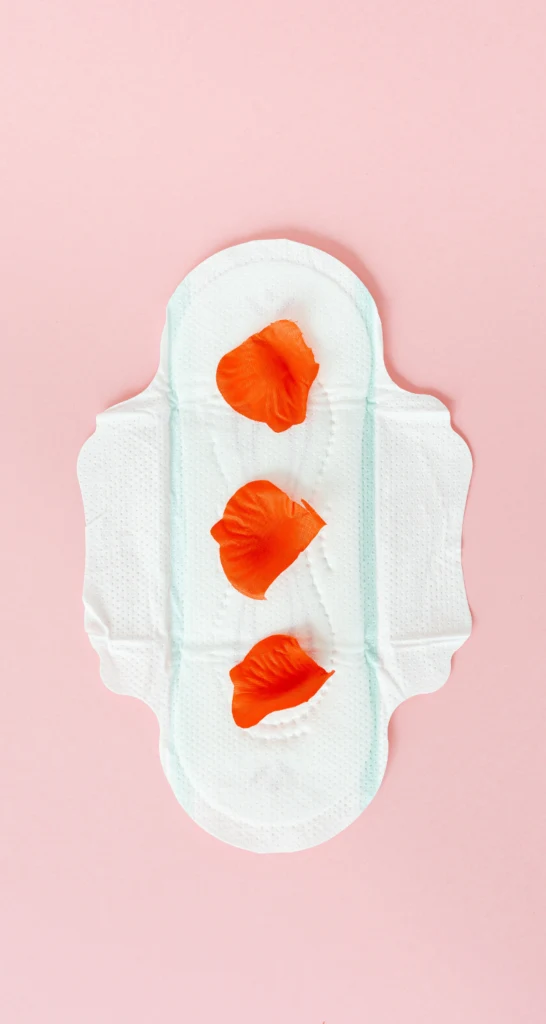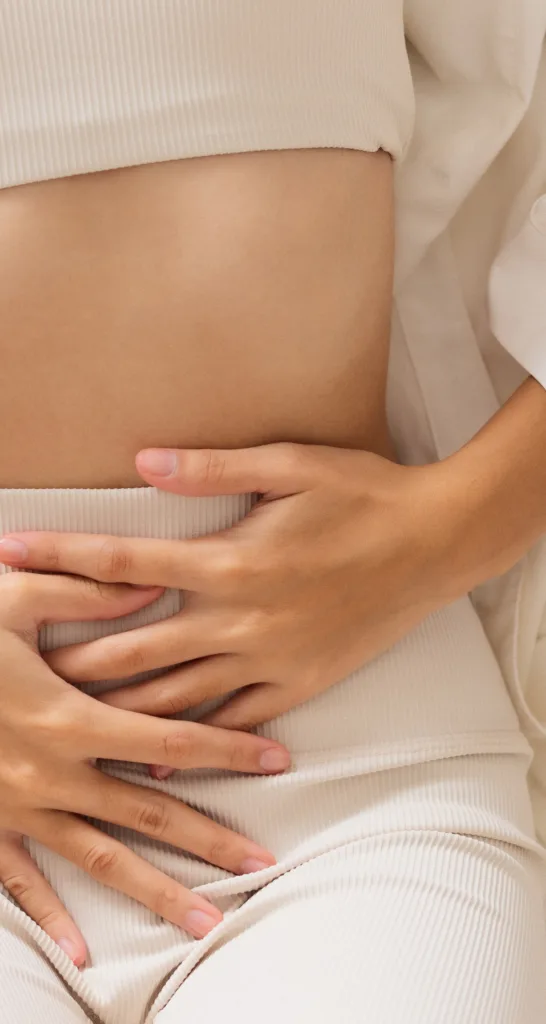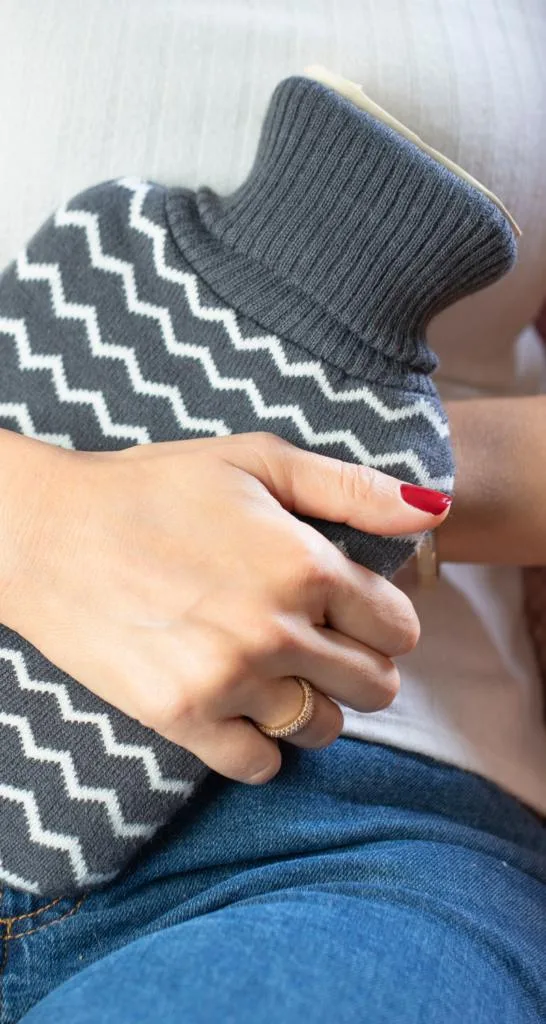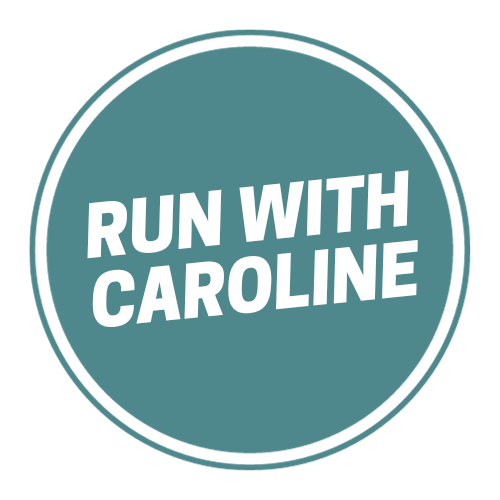If you’ve ever wondered: “Do you burn more calories on your period?” then you’re not alone.
With all the bloating, food cravings and hormonal changes, your menstrual cycle can feel like a physical and emotional rollercoaster.
Many women see exercise as a way to relieve their period symptoms, whereas others prefer to rest when it’s that time of the month.
Whatever your preferences, your period can have a big impact on your running performance.
In this guide we’ll answer all your common questions when it comes to exercise and your menstrual cycle.
In this guide we’ll explore:
- Do you burn more calories on your period?
- How many calories do you burn on your period?
- Do you gain weight during your period?
- How much blood do you lose on your period?
- Do you feel more hungry during your period?
- What to eat on your period: Foods to eat and foods to avoid
- 5 ways to ease period cramps
Ready?
Let’s get started!

Do you burn more calories on your period?
If you’re wondering: “Do you burn more calories on your period?” then you’re not the only one.
The amount of calories you burn during your period will depend on a variety of factors, namely your resting metabolic rate (RMR), which is the amount of calories your body burns while at rest.
Your RMR is affected by your age, gender, health, diet, race and activity levels.
Research has found that resting metabolic rate varies widely across women during the menstrual cycle.
In a 2003 study, they tracked the resting metabolic rates in 19 women during one complete menstrual cycle. The study found that:
- 9 women had a wide variation of changes to their RMR – between 5-10%
- 10 women had hardly any change at all to their RMR – between 2-4%
The study concluded that RMR cannot be assumed to be stable in all women.
The key takeaway? Some women may burn more calories on their period while others won’t have much of a difference.
Related: Is it safe to exercise during IVF? Exercises to do and exercises to avoid
How many calories do you burn on your period?
There are various ways to calculate your resting metabolic rate (RMR).
The simplest way is to use a RMR calculator that takes into consideration your height, weight, age, gender and activity levels.
Here are two examples:
| RMR example 1 | RMR example 2 |
| Age: 35 years old Gender: Female Height: 5ft 6 inches Weight: 140lbs Activity level: Very active Calories burned on a typical day: 2,323 calories | Age: 25 years old Gender: Female Height: 5ft 4 inches Weight: 120lbs Activity level: Sedentary Calories burned on a typical day: 1,529 calories |
You can use a RMR calculator to help you work out how many calories you should be consuming to maintain your weight.
Of course, if you’re an active person, you’ll need more calories than someone who is not so active.
If your goal is weight loss, then you’ll need to stay below your calorie needs or increase your activity levels.
Whilst there is no single RMR value that is appropriate for all adults, RMR normally ranges from 1,400 to 1,600 calories per day for most people.
Related: 6 tips for successfully running with a chronic illness

Related: When does period weight go away? All your questions answered
Do you gain weight during your period?
It is normal to gain weight during your period. Some women gain as much as 3 to 5 pounds.
Water retention is the main cause of period weight.
Overeating, sugar cravings and missed workouts can also cause you to put on extra pounds during your menstrual cycle.
Bloating may also make you feel heavier.
If you’re wondering: “When does period weight go away?” the answer is “within a few days of your period ending”.
Related: Taste blood when running? 7 causes + ways to prevent it
How much blood do you lose on your period?
The average woman will lose about 30 to 60 millimetres of blood during their period, which is equivalent to 2 to 4 tablespoons.
Conditions such as fibroids, endometriosis, polycystic ovarian syndrome (PCOS) and adenomyosis can cause women to lose more blood on their period – up to 80 millimetres (about 5 tablespoons).
Research has shown that you don’t just lose blood on your period.
A 1985 study concluded that period flow is a combination of blood (36%) and other elements including tissue, uterine lining, mucus and blood clots (64%).
Related: Running for weight loss: The most effective running workouts to help you lose weight

Related: Does chocolate help with period cramps? Everything you need to know
Do you feel more hungry during your period?
Pre-period hunger pangs are real!
Many women experience hunger pangs during their period, craving sweet and salty foods and foods that are high in fat.
Fluctuating hormones in the lead up to your period play a large role here.
Progesterone (the hormone that helps to bring on menstruation) peaks just before your menstrual cycle, causing you to have food cravings.
Food cravings are generally thought to be your body’s way of telling you that you need more of a certain nutrient.
If you have a heavy blood flow, for example, your body may be iron deficient so it’s wise to replenish your iron levels by eating foods rich in iron such as red meat, beans, nuts and fortified breakfast cereals.
Related: What to eat before running in the morning: 8 eating tips
What to eat on your period
To help ease uncomfortable symptoms during your period, it’s good to indulge in tasty and nutritious foods to provide some relief.
Symptoms such as abdominal cramps, bloating and fatigue can all be made that more bearable when you follow a healthy, balanced diet.
Here are foods to eat and foods to avoid during your period:
Foods to eat on your period:
- Water rich fruit (watermelon, cucumber, melon)
- Leafy green vegetables (spinach, kale)
- Ginger
- Chicken
- Fish
- Turmeric
- Dark chocolate
- Nuts
- Quinoa
- Beans and lentils
- Tofu
- Peppermint tea
Related: Zero calorie foods: The complete guide
Foods to avoid on your period:
Enjoy the following foods in moderation:
- Sugar
- Coffee
- Salt
- Spicy foods
- Alcohol
- Red meat
Some women find that limiting processed foods and foods containing dairy and gluten can also help relieve period symptoms such as abdominal cramps and bloating.
Related: Carb loading for runners: Foods to eat and mistakes to avoid

Related: Hormones and female athletic performance: Everything you need to know
5 ways to ease period cramps
Now you know the answer to: “Do you burn more calories on your period?”, here are 5 ways to ease period cramps:
#1 Exercise
While you may feel like curling up in a ball on your bed during your period, exercise such as light jogging and yoga is proven to help ease period cramps.
#2 Use a hot water bottle
The trusty hot water bottle is a life saver for many women suffering with debilitating period pain.
Hot water bottles help to soothe period pain and the other pains associated with the menstrual cycle, including lower back pain and leg pain.
To prevent hot water bottle burns on your skin, cover your bottle and avoid leaving it on your skin for more than 20 minutes.
#3 Use pain medication
Medications such as ibuprofen help to fight the pain and reduce inflammation.
Speak to your healthcare professional about other medications to help with the pain.
#4 Use CBD
CBD is becoming an increasingly popular way to relieve pain, especially pain associated with the menstrual cycle.
Although research on the effectiveness of CBD is still limited, some studies show that CBD might help to reduce inflammation.
In a 2019 study, participants reported that CBD oil was the most effective at reducing pain caused by endometriosis.
#5 Use a TENS machine
A TENS (transcutaneous electrical nerve stimulation) machine is a small, battery operated device connected to sticky pads.
It involves the use of a mild electrical current as a means to provide short term pain relief.
The research on TENS machines is patchy. More research needs to be conducted to assess whether TENS machines provide effective and reliable pain relief.
Saying that, many women swear by their TENS machine during their period.
- 5 things I wish I’d known before returning to running - March 3, 2024
- Running 20 minutes a day: Benefits + how to start - January 27, 2024
- How to run your first 2 hour half marathon - January 16, 2024
